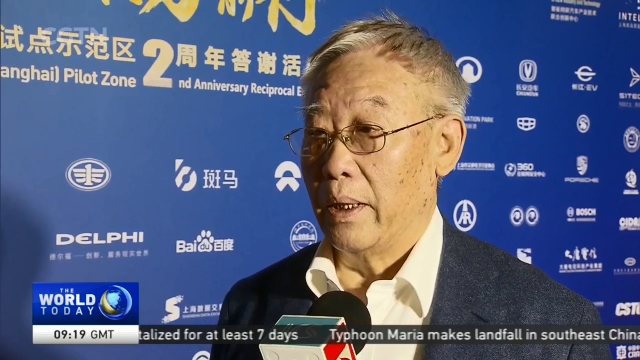
17:44, 11-Jul-2018
Tariff Cut on Auto Parts: Expert: Tariff cut is conducive to the restructuring of domestic auto industry
Updated
17:14, 14-Jul-2018
02:11

China is opening its auto market for foreign competition, with the latest tariff cuts on imported vehicles and auto parts, as well as the waiver of equity caps for auto joint ventures. How will these policies change the landscape of the auto market in China? CGTN's Cui Hui'ao explains.
Starting July 1st, China has imposed a substantive cut on auto part tariffs. Import tariffs on 79 auto parts now drop to 6 percent, from the previous 8 to 25 percent.
LIN JIANG, PROFESSOR OF ECONOMICS ZHONGSHAN UNIVERSITY "After China joined the WTO, although many domestic automakers have taken the opportunity to partner with foreign producers, auto parts remains THE area that was heavily protected. Now, the tariff cut will force domestic suppliers to step up their production.
"
Professor Lin says for a long time, joint venture brands were under pressure to source parts from Chinese suppliers. He adds that that somewhat hampered domestic vehicle quality. With the new policy, these companies can source parts from their home factories, which will create more competition for Chinese suppliers.
ZHANG SHULIN, FORMER SECRETARY-GENERAL CHINA ASSOCIATION OF AUTOMOTIVE MANUFACTURERS "The import tariff cuts together with the waiver of equity caps for auto joint ventures will push Chinese automakers to become stronger. The pressure will also drive innovation in our automobile companies by creating a new competitive environment.
"
YANG ZHONGNING, INVESTMENT ADVISOR INDUSTRIAL SECURITIES "In the long term, less competitive auto companies, or companies with a weak market foundation will see their market share reduced by these opening policies, as more imported vehicles enter the Chinese market."
Yang says with these opening policies, the auto sector has become more and more market-driven and diversified.
CUI HUI'AO GUANGZHOU "Industry insiders believe these massive cuts on auto tariffs are conducive to the structural adjustment, transformation and upgrading of the Chinese auto industry. And perhaps in the near future, we will see more Chinese auto brands going abroad. Cui Hui'ao, CGTN, Guangzhou."

SITEMAP
Copyright © 2018 CGTN. Beijing ICP prepared NO.16065310-3
Copyright © 2018 CGTN. Beijing ICP prepared NO.16065310-3